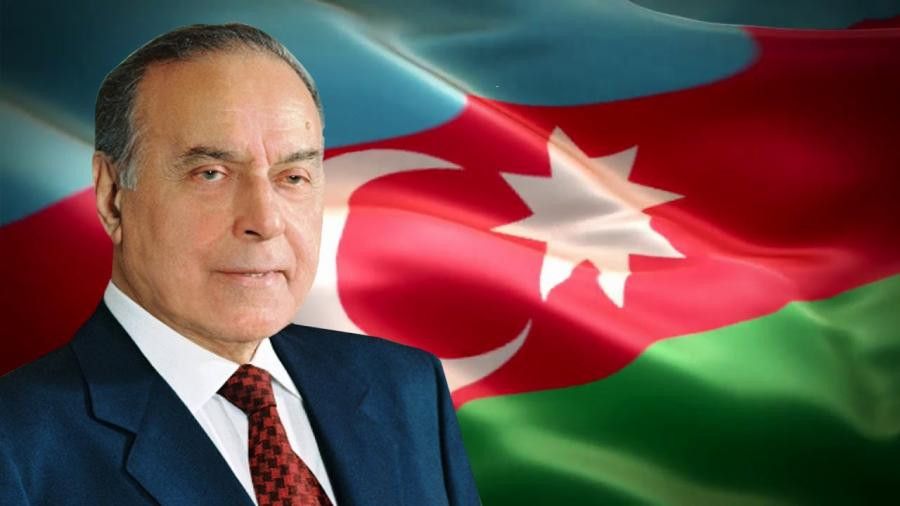National Salvation Day and architecture of stability

By any measure, June 15, 1993, stands as one of the most consequential dates in the history of modern Azerbaijan. It was on this day, now commemorated annually as National Salvation Day, that Heydar Aliyev, the statesman who would come to be known as the National Leader, returned to power and pulled a fractured, floundering republic back from the edge of civil war and state collapse.
The early 1990s were a time of disillusionment. The promise of post-Soviet independence had quickly dissolved into political chaos, economic freefall, and territorial war. In the wake of the First Garabagh War and amid violent power struggles in Baku, Azerbaijan was perilously close to becoming a failed state. No authority was trusted, no institution was respected, and no leader had the mandate or the skill to unify the country, until Heydar Aliyev, the National Leader of Azerbaijanis.
What Heydar Aliyev brought in June 1993 was not just experience, but also legitimacy. A former Soviet Politburo member and head of Soviet Azerbaijan, he had spent decades navigating complex political machinery. He understood power, but more importantly, he understood statehood. His return to leadership marked the beginning of Azerbaijan’s second independence, not one declared by paper, but one earned through survival, stabilization, and the painstaking reconstruction of public trust.
National Salvation Day, then, is not just a commemoration. It is a warning of what could have been, and a celebration of what was prevented. Through Aliyev’s pragmatic vision, Azerbaijan restored internal order, defused separatist tensions, and reoriented its foreign policy to ensure national sovereignty. His signing of the 1994 “Contract of the Century” with Western energy firms turned Azerbaijan’s hydrocarbon wealth into strategic leverage. The foundations of today’s economic and geopolitical relevance were laid then, in the shadow of a near-collapse.
But the real test of any leader’s legacy lies not in their achievements alone, but in how that legacy is carried forward. In this regard, President Ilham Aliyev, now more than two decades into his tenure, has not merely inherited his father’s vision; he has advanced it with strategic clarity and a distinctly modern approach.
Where Heydar Aliyev was the architect of Azerbaijan’s post-Soviet survival, Ilham Aliyev has been the steward of its emergence as a regional power. His administration has overseen the rapid modernization of infrastructure, the digital transformation of governance, and the diversification of foreign partnerships, from energy exports to connectivity corridors. Under his leadership, Azerbaijan has strengthened its military capabilities, reclaimed territories lost in the 1990s, and positioned itself as a key interlocutor in Eurasian diplomacy.
Indeed, the 2020 Second Garabagh War—ending in the restoration of Azerbaijani territorial integrity—was as much about the continuity of the state-building process as it was about the resolution of frozen conflict. That victory, achieved with both military precision and diplomatic restraint, was a culmination of the long-term strategy launched in 1993.
In today’s volatile geopolitical climate, Azerbaijan’s measured neutrality, multi-vector diplomacy, and refusal to host foreign military bases speak to a confidence that was hard-won. The institutions that function today, the sovereignty that is defended today, and the vision that is executed today are all rooted in the events of June 15, 1993.
National Salvation Day is, therefore, not a static holiday. It is a political touchstone, a moment each year when the country takes stock of how far it has come and why. It honors not only Heydar Aliyev’s decisive intervention at a moment of national crisis, but also the continuing evolution of a state that once stood on the edge of fragmentation and now stands tall in a contested region.
For Azerbaijanis, June 15 is not merely about looking back. It is about recommitting to the principles that kept the republic intact: strong leadership, sovereign decision-making, and an unshakable belief in the country’s future.
Here we are to serve you with news right now. It does not cost much, but worth your attention.
Choose to support open, independent, quality journalism and subscribe on a monthly basis.
By subscribing to our online newspaper, you can have full digital access to all news, analysis, and much more.
You can also follow AzerNEWS on Twitter @AzerNewsAz or Facebook @AzerNewsNewspaper
Thank you!
